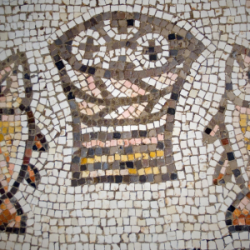Brian McLaren is choosing humor this election year. In April, he released—in a new series of low-priced ebooks—short fictions on faith and politics, including The Word of the Lord to Democratsand The Word of the Lord to Evangelicals. Each brief story imagines a different prototypical religious or political character being visited by God and urged to deliver an important message to their constituencies.
The laughs come in how God appears to each person, and how each character reacts to—and tries to ignore—the divine disturbance.
Patheos' Deborah Arca spoke with McLaren about The Word of the Lord series and how we might stay spiritually grounded through the combative campaign season ahead.
These ebooks are quite a departure from your more "serious" writing. What are your hopes for the books?
I think that shallow or brittle spirituality and a lazy or combative theology will produce politics in their own image. And a deep, vibrant spirituality and a robust, vigorous, inclusive theology will produce a dynamic and creative and hospitable political life.As I observe our political discourse, I don't think we're in danger of overdosing on the latter. How was that for an understatement?
These ebooks definitely are humorous, but sometimes humor helps us grapple with serious matters more than a straight, direct, matter-of-fact approach. Soren Kierkegaard talked about this—how a person in the grip of an illusion can't be approached directly. It takes studied indirection to get through, so the only way to engage seriously is by appearing un-serious.
That's especially important when one of our maladies is excessive seriousness! Sometimes, when we take ourselves too seriously, the best antidote is a good laugh, and I'm really happy to hear that these little ebooks, whatever their other side effects, are adding some laughter to the universe.
Do you see a connection between spiritual practices and how we live in the public square? What advice would you offer for how to stay spiritually grounded and faithful during this election year?
Throughout history, political regimes do battle in a smoke and fog of lies, caricatures, mockery, half-truths, scapegoating, evasion, self-deception, false advertising, fraud, slander, brazen hypocrisy, and extortion. Our times are no exception. Even if you are spiritually grounded, you can be sure you'll be knocked around and disoriented at times in that atmosphere. I lived most of my life in the Washington, D.C., area, so I had decades to observe all this up close, as local news, so to speak, and now, living on the edge of nowhere in Florida, I have a little more distance to reflect.
From this vantage point, I'd offer three suggestions for starters.
First would be Jesus' words about taking the beam out of our own eyes before focusing on the splinter in the eyes of others. That means that if you're a Democrat, you need to focus on Democratic beams more than Republican or Libertarian splinters, and vice versa. That's the spiritual practice of self-examination, and it's revolutionary.
Second would be the spiritual discipline of deep listening—really trying to understand the other side's concerns, fears, hopes, values, and so on. It's a hollow victory for partisans of one viewpoint or party to get their way at the expense of their neighbors, especially when their neighbors have valid concerns. In a marriage, if a husband wins every argument, he's going to lose his marriage . . . and something similar can happen politically. It's far better to look for win-win, common-good solutions.
Third would be the spiritual practice of compassion—by which I mean keeping in mind the vulnerable and the voiceless. The birds of the air and flowers of the field don't get a vote—so some of us need to include their interests in our own vote. Little children in Afghanistan or Iraq—or Iran or Gaza or Israel or Syria—don't get a vote, but their lives are profoundly affected by elections here.
Here within our borders, the children of migrant farm workers don't get a vote, nor do teenagers in our inner cities or kids growing up on top of oil shale or coal or along coastlines at low elevations. But their lives will be affected disproportionately by the prison policies or gun policies or immigration policies or energy policies that are promoted by powerful lobbyists who make big campaign contributions. So those of us who have a heart attuned to compassion need to take their needs and interests into consideration when we vote. We need to keep our circle of compassion wide.





